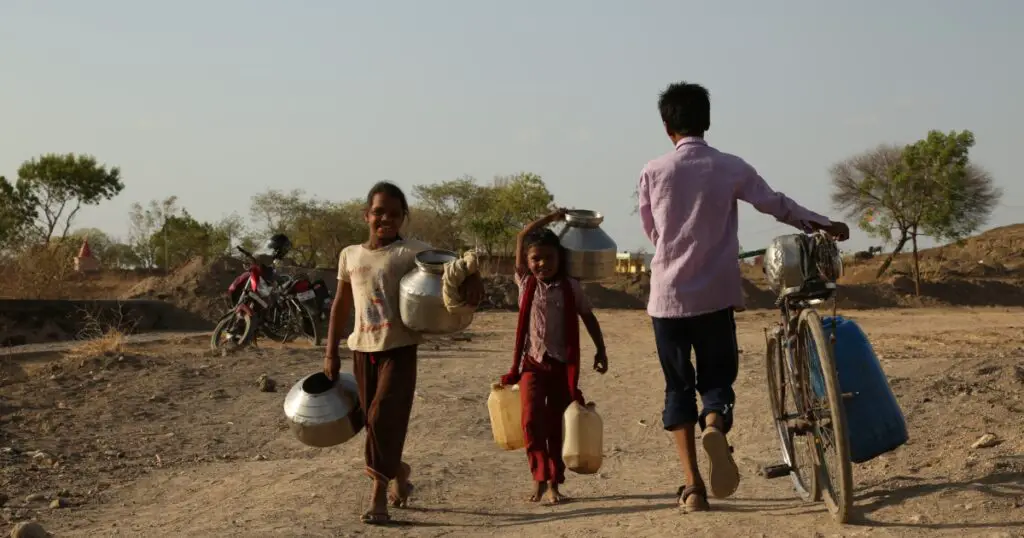- A survey by the European Investment Bank has revealed that most Kenyans believe climate change and environmental damage have affected their income or source of livelihood
- Losses associated with climate change in Kenya include severe drought, rising sea levels or coastal erosion, or extreme weather events such as floods or hurricanes
- The survey also found that most Kenyans, at 81%, said that investing in renewable energy should be prioritised
A new survey now shows that most Kenyans, at 97%, say climate change is already affecting their everyday lives.
The first edition of the European Investment Bank’s 2022 Climate Survey found that 76% of Kenyans believe that climate change and environmental damage have affected their income or source of livelihood.
The survey aimed to inform the broader debate on attitudes and expectations regarding climate action and sampled over 6,000 respondents, including 1 000 Kenyans aged 15 and over, from 10 African countries. EIB surveyed respondents between 1 and 25 August 2022, with a representative panel for each country polled.
The survey also found that most Kenyans, at 81%, said that investing in renewable energy should be prioritised.
The survey results confirmed that climate change has negatively affected the livelihoods of the Kenyan people. These losses are typically due to severe drought, rising sea levels or coastal erosion, or extreme weather events such as floods or hurricanes.
A high 78% of Kenyans, compared with the African average of 57%, said they or people they know have already taken some form of action to adapt to the impact of climate change. Some of these initiatives include investments in water-saving technologies to reduce the impact of drought and drain clearing in advance of flooding.
Meanwhile, nearly half (48%) of Kenyans said climate change is one of the biggest challenges people in their country are currently facing, next to other top challenges such as inflation or access to food.
When asked about the energy sources their country should invest in to combat climate change, 81% of Kenyan respondents (compared with the African average of 76%) say that renewable energy should be prioritised, far ahead of fossil fuels (12%).
Climate change in Kenya and renewable energy
According to the report, Kenya’s renewable energy sector is driven by a good mix of renewable energy, including geothermal, wind, hydro- and some utility-scale solar power.
The country is already in the top 10 countries globally for electricity generation from geothermal power, with close to 1 000 MW of installed capacity.

“This is a sign of Kenya’s strong commitment to global climate action, along with the country’s ambitious nationally determined contribution under the Paris Agreement,” the report said.
The EIB has partnered with the Kenyan government and private sector players in their work to promote the global green energy transition, taking it to the next level with climate mitigation measures in the transport and industry sectors.
This is evident from the recently commissioned Olkaria Unit 6 geothermal plant supported by the EIB. The plant will further strengthen Kenya’s ranking as a country with one of the world’s highest shares of renewable energy (wind, solar and geothermal).
Henriette Geiger, EU Ambassador to Kenya, said that the country’s remarkable renewable energy resources could enable a green and sustainable economy if fully harnessed.
Climate change threatens livelihoods of more than 100 million Africans
“The EU Delegation is ready to support Kenya in moving towards a more regenerative economy to help mitigate the negative impacts of climate change. With the Global Gateway, the EU and EIB intend to promote further large-scale investments in Africa,” Geiger said.
At the same time, Thomas Östros, vice-president of the EIB, said that EIB is working closely with Kenyan partners to accelerate the green transition and to mobilise climate action investment. This includes support for large-scale clean energy, sustainable transport, and water and wastewater management.
Demand for electricity in Kenya rises
In a related story, the national demand for electricity hit a new peak demand of 2,051MW in May 2022, up from 2,036MW recorded in November 2021, to show an accelerated growth and recovery in demand which slowed down in the wake of the COVID-19 pandemic.
The new peak demand was recorded on 12th May 2022 in the Daily System Operation and Dispatch Analysis Report by Energy and Petroleum Regulatory Authority (EPRA). The growth was driven mainly by renewable energy sources, with geothermal energy making the greatest contribution, further boosting Kenya’s climate action agenda.
According to the Daily Power Generation and Dispatch Analysis Report released on 19, May 2022, by Energy and Petroleum Regulatory Authority (EPRA), the country’s highest energy gross demand was recorded on 18th May 2022, registering a 2.5% growth to record a new peak of 37,273.17MWh up from 36,380.63MWh in November last year.
NSE-listed electricity generator KenGen PLC’s geothermal power stations in Olkaria, Naivasha provided the largest share of 14,763.37MWh during the recent analysis. KenGen currently boasts 713MW of geothermal energy generation capacity and is readying to commission another 83MW in its newest power plant, the Olkaria I additional unit 6.











